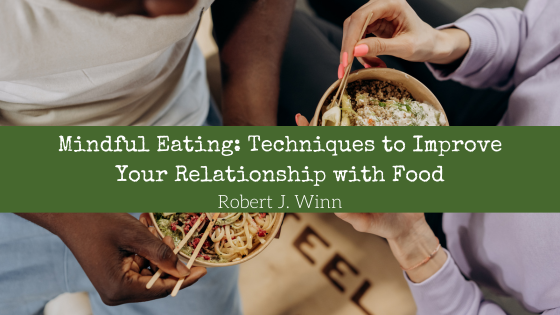In our fast-paced world, eating often becomes a hurried task, detached from the experience of nourishing our bodies. Mindful eating offers a way to reconnect with food, promoting better health and well-being. This article explores techniques for cultivating mindful eating habits and improving your relationship with food.
Understanding Mindful Eating
Mindful eating involves paying full attention to the eating experience without judgment. It encourages awareness of the colors, smells, textures, flavors, and sounds of food, as well as the sensations of hunger and fullness. By focusing on the present moment, mindful eating helps you appreciate food more deeply and recognize the emotional triggers that lead to overeating.
Slow Down Your Eating Pace
One of the simplest ways to practice mindful eating is to slow down. Take smaller bites, chew thoroughly, and savor each mouthful. This allows your body to signal when it’s complete, reducing the likelihood of overeating. Slowing down also enhances the enjoyment of food, making mealtimes more satisfying.
Remove Distractions
You are eating in front of the TV, computer, or while on your phone, which detracts from the mindful eating experience. To cultivate mindfulness, eliminate these distractions and focus solely on your meal. Create a calm eating environment where you can fully engage with your food and the act of eating.
Pay Attention to Hunger and Fullness Cues
Learning to recognize your body’s hunger and fullness signals is a critical component of mindful eating. Before eating, assess your hunger levels. Are you physically hungry, or are you eating due to stress, boredom, or habit? During your meal, periodically check in with your body to gauge your fullness. Stop eating when you feel comfortably satisfied rather than overly full.
Engage Your Senses
Fully engaging your senses enhances the mindful eating experience. Notice the vibrant colors of your meal, the aroma wafting from your plate, and the textures and flavors as you chew. By focusing on these sensory experiences, you deepen your appreciation for food and become more aware of what and how much you are eating.
Practice Gratitude
Expressing gratitude for your food can foster a positive relationship with eating. Before your meal, take a moment to appreciate the effort that went into growing, preparing, and serving your food. This practice can enhance your connection to the food you consume and promote a more mindful eating approach.
Reflect on Your Eating Experience
After eating, take a few minutes to reflect on your meal. How did the food make you feel? Were you present during the meal, or did your mind wander? What emotions or thoughts arose? Reflecting on your eating experience helps you become more aware of your eating habits and identify areas for improvement.
Mindful eating is a powerful tool for improving your relationship with food. By slowing down, removing distractions, paying attention to hunger and fullness cues, engaging your senses, practicing gratitude, and reflecting on your eating experience, you can cultivate a healthier, more satisfying approach to eating. Embrace these techniques to enjoy your food more fully and promote overall well-being.

